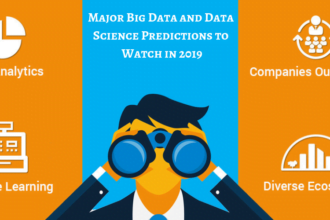Data science careers used to be extremely selective and only those with certain types of traditional credentials were ever considered. While some might suggest that this discouraged those with hands-on experience from ever breaking into the field, it did at least help some companies glean a bit of information about potential hires. Now, however, an increasingly large number of people breaking into the field of data sciences actually aren’t themselves scientists.
Many come from a business or technical background that has very little to do with traditional academic pursuits. What these prospects lack in classroom education they more than make up for with hands-on experience, which has put them in heavy demand when it comes to hire people for firms that need to tackle data analysis tasks on a regular basis. With 89 percent of recruiters saying that they need specialists who also have plenty of soft skills, it’s likely that a greater percentage of outside hires may make it into the data sciences field as a whole.
Moving From One Career to Another
The business and legal fields increasingly require employees to have strong mathematical skills, which has encouraged people to learn various types of skills that they might not otherwise have had. Potential hires who are constantly adding new skills to their personal set and practicing them are among those who are most likely to be able to land a new job in the field of data sciences in spite of the fact that they don’t normally have much in the way of tech industry experience.
This is especially true of anyone who needs to perform analytic work in a very specific field. Law offices who want to apply analytic technology to injury claims would more than likely want to work with someone who has a background in these claims because they would be most capable with the unique challenges posed by accident suits. The same would go for those in healthcare.
Providers have often expressed an interest in finding data analysis specialists who also understand the challenges associated with prescription side-effect reporting systems and patient confidentiality laws. By hiring someone who has worked in a medical office, organizations that are concerned with these rather unique problems posed by these issues. The same is probably true of those who work in precision manufacturing and even food services.
By offering jobs to those who previously handled other unrelated responsibilities in these industries, some firms now say that they’re hiring well-rounded individuals who know about customer interactions as well as how to draw conclusions from visualizations. Perhaps most importantly, though, they’re putting themselves in a better position to survive any labor shortages that the data science field might be experiencing.
Weathering Changes in the Labor Market
While countless individuals naturally always struggle to find their dream job, the market currently seems to be in favor of those who want to transition into a more technically-oriented position. Firms that have to enlarge their IT departments might be feeling the crunch, so creating a resume might be all it takes for someone to land a new job. Since companies and NGOs have to compete for a relatively small number of prospects, it’s making sense for them to hire those who might not have otherwise even thought about working in the tech industry.
Firms that find themselves in this position might not have been able to get anyone to fill these jobs if they didn’t do so. That’s also creating room for something of a cottage industry of data scientists.
The Growth of Non-traditional Data Science Firms
Companies that perform analytics on behalf of someone else are starting to become rather popular. Considering the rise of tracking-related laws, small business owners might look to them as a way to ensure compliance. Anything that they do on behalf of someone else usually has to be compliant with all of these rules per the terms of the agreed upon contract. This takes at least some of the burden off of companies that have little to no experience at all with monetizing their data and avoiding any legal troubles associated with doing so.
While it’s likely that many of these smaller analysis offices will eventually merge together, the fact of the matter remains that they’re growing for the time being. As they do, they’ll probably create any number of additional positions for those looking to break into the data science field regardless of just how far their old careers were from the tech industry.









